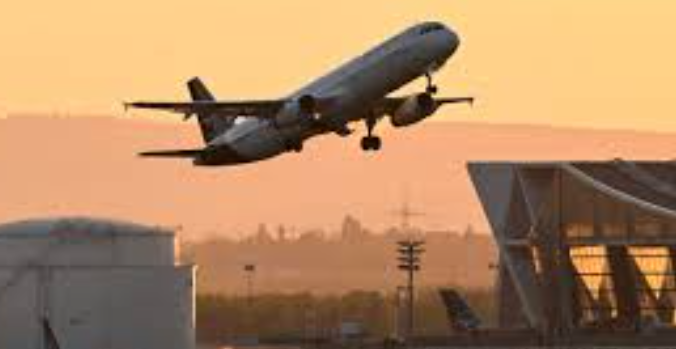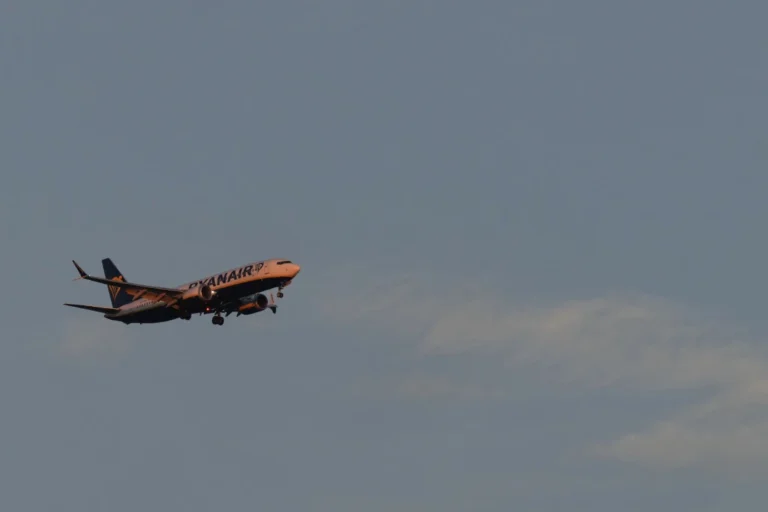Air France, Lufthansa suspend operations in Pakistani airspace amid India-Pakistan tensions
Air France and Lufthansa were among the international carriers that have suspended operations via the Pakistani airspace amid India-Pakistan tensions in the aftermath of the Pahalgam terror attack.
According to a report by news agency Reuters citing flight tracking data, international airlines were seen avoiding the Pakistani airspace as Islamabad’s tensions with New Delhi continue to escalate after the deadly terrorist attack in the Kashmir valley that took 26 lives.
Meanwhile, Lufthansa in a statement to Reuters said that its aircraft are “avoiding Pakistani airspace until further notice”.
The steps are being taken even though it means that avoiding the Pakistani airspace will result in longer flight times on some routes to Asia, Lufthansa said, and added that it is monitoring developments.
In the wake of escalating tensions between India and Pakistan, European carriers Air France and Lufthansa have announced the suspension of their operations through Pakistani airspace. The decision has led to the rerouting of several international flights and added to the growing concerns over aviation safety and geopolitical instability in the region.
Background of India-Pakistan Tensions
India and Pakistan, two nuclear-armed neighbors, have a long and tumultuous history marked by three wars and several military skirmishes. Their latest bout of tensions emerged after a series of military incidents along the Line of Control (LoC) in Kashmir—a region claimed by both countries. Following a terror attack on Indian forces, attributed by New Delhi to Pakistan-based militants, India launched airstrikes across the border. In retaliation, Pakistan responded with its own military actions, prompting a severe diplomatic crisis and military alertness on both sides.
The heightened military activity in the region has had repercussions beyond the political and security domains, severely affecting civil aviation as well. Pakistani authorities closed down their airspace to commercial flights temporarily—a move that had a ripple effect on global air traffic, especially for airlines flying between Europe and South Asia or Southeast Asia.
Air France and Lufthansa’s Decision
As a direct consequence of the airspace closure and the prevailing regional instability, Air France and Lufthansa announced the suspension of all flights that traverse Pakistani airspace. The move is primarily driven by safety concerns for passengers and crew amid fears of military miscalculations or accidental engagements.
A spokesperson from Air France stated, “The safety of our passengers and crew is our absolute priority. Due to the current geopolitical situation and military activity in the region, Air France has decided to suspend its overflight of Pakistani airspace until further notice.” Lufthansa issued a similar statement, emphasizing that the rerouting of flights was being done in accordance with international aviation safety standards and advisories issued by relevant authorities.
Impact on Flight Routes and Operations
The suspension has led to significant rerouting of flights. Routes that previously passed over Pakistan now have to take longer paths through alternate corridors such as over Iran, Central Asia, or the Arabian Sea. This has added considerable flying time—sometimes up to two hours—to affected flights, thereby increasing fuel costs, operational complexity, and passenger inconvenience.
Flights between European cities such as Paris, Frankfurt, and destinations in India, Thailand, Singapore, and Malaysia have been impacted. Some flights have had to be canceled temporarily, while others operate with delays due to longer flight paths. Additionally, flight crews must now operate under more strenuous schedules because of increased flight durations, which has implications for airline logistics and crew rotations.
Global Aviation Disruption
The closure of Pakistani airspace affects not just European carriers but also airlines from Asia and the Middle East that use the route as a corridor to Europe. Singapore Airlines, British Airways, Thai Airways, and others have all issued advisories about potential delays or route changes. The International Civil Aviation Organization (ICAO) and the International Air Transport Association (IATA) have also released statements urging cooperation and communication between countries to minimize disruptions while maintaining air safety.
This is not the first time aviation has been caught in the crossfire of India-Pakistan tensions. In 2019, a similar airspace closure occurred after an Indian fighter jet was shot down by Pakistani forces following a military incursion. That closure lasted several months and had a significant economic impact on airlines and regional connectivity.
Economic and Strategic Implications
For Air France and Lufthansa, the suspension of operations in Pakistani airspace means increased costs due to longer flight paths and potential loss of revenue from canceled flights. These costs may eventually be passed on to consumers in the form of higher ticket prices, particularly for routes between Europe and South Asia.
From a broader perspective, the disruption underscores the vulnerability of international air routes to geopolitical conflicts. Pakistan’s geographic location makes its airspace a vital corridor for air travel between the West and the East. Any closure, even temporary, creates logistical challenges for global aviation networks.
Strategically, this event highlights the interconnected nature of global transportation and how regional conflicts can have worldwide effects. It also stresses the importance of diplomatic resolution and crisis management in conflict-prone regions to safeguard not just political stability but also civilian interests such as travel and commerce.






